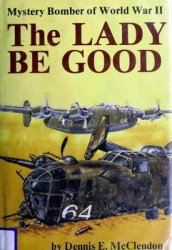Rest among the native Muslims, fomented in Constantinople, Italy demanded Ottoman recognition of an Italian protectorate, declaring war next day.
Italian warships shelled and blockaded Turkey’s eastern Mediterranean ports, while other squadrons bombarded the Libyan ports and, with naval landing parties, secured Tobruk (October 4), the capital, Tripoli (October 5), Homs, Derna and Benghazi (October 17-21), meeting little resistance. The main Italian expeditionary force, 50,000-strong, landed at Tripoli on October 10. It included nine aircraft. On October 23, Capt Piazza in a Nieuport NG made the first reconnaissance flight in a military aircraft. On October 26, two aircraft directed ground and naval artillery contributing to the Turkish defeat at Sciara-Sciat. On November 1, Lt Giulio Gavotti flew in an Etrich Taube monoplane from Tripoli on history’s first bombing mission, dropping (by hand) four 4.51b (2kg) bombs on Turkish positions c30 miles (48km) inland. The first “leaflet raids” and photographic reconnaissance flights followed.
The Turks and their Senussi allies retreated to the interior; the Italians held their coastal enclaves and maintained a close blockade. Elsewhere, Italian warships bombarded Beirut and Smyrna (January-February 1912), forced a temporary closure of the Dardanelles by shelling the forts (April), and in May landed occupation forces on Rhodes, Kos and other Dodecanese islands. In July, Italy launched an offensive into the Libyan interior. Threatened by the approach of the First Balkan War, Turkey sought peace. By the Treaty of Ouchy, October 15 1912, Libya and the Dodecanese Islands were ceded to Italy. RO’N.
Lichtenstein. German airborne radar to intercept night bombers. First used August 1941.
Liddell Hart, Capt (Sir) Basil
(1895—1970). Br. Military thinker and author. See also tank. s.
Lidice. Czechoslovakian village razed by German troops, June 9 1942, and its c390 inhabitants shot as reprisal for assassination of Heydrich.
Lie, Trygve Halvdan (1896-1968). Norwegian. The first Secretary General of the un and a strong supporter of un involvement in the Korean War. He lobbied the Security Council to vote for the American resolutions of June 25 and 27 1950 condemning the dprk and calling on un members to assist the ROK.
Liege, Battle of (1914). Von Molt-ke’s modifications to the Schlieffen plan meant that, in August 1914, the Germans had to ensure the immediate capture of the 12 forts around Liege in Belgium so that their invading armies could pass safely through the corridor between Holland and the Ardennes en route to France. Six brigades from Second Army were assigned to the attack, which began on August 5. Two days later, under the temporary command of Maj Gen Erich Ludendorff - who had largely planned the operation before the war - men of the 14th Infantry Brigade penetrated Liege itself and enabled Ludendorff to demand the surrender of the Citadel. With the surrounding forts still holding out, the Germans deployed huge 30.5cm and 42cm howitzers. Two forts were taken by infantry assaults but the remainder were battered into submission by the howitzers, the last two falling on August 16. PJS.
Lightning see p-38 lightning.
Liman von Sanders, Gen Otto Victor Karl (1855-1929). Ger. Late in 1913, Liman von Sanders was appointed head of the German military mission charged with the reorganization of the Turkish army. When Turkey declared war on the Allies, October 29 1914, he was given titular command of the invasion of the Russian Caucasus, Enver Pasha’s vainglorious offensive (which Liman attempted to discourage) ending in defeat at Sarikamis. In March 1915, only a few weeks before the Allied landings, Liman took command at Gallipoli, where his well-prepared fortifications and mobile defence (for which Ataturk must share the credit) repelled the invasion. Succeeding Colmar von der Golz in command of Turkish forces in the Middle East, 1916, Liman was c-in-c at the time of Allenby’s
Damascus campaign, September-October 1918. He failed to anticipate Allenby’s coastal thrust and his armies, outnumbered and low in morale, were shattered at Megiddo and driven in hectic retreat to Damascus and beyond, capitulating on October 30. RO’N.
Limbang see Brunei revolt.
Limited war. A conflict with an aim that may be achieved without accomplishing the total defeat of the enemy and without the use of the ultimate weapons.
Lincoln, Avro 694 (Br, post-WWII). Long-range heavy bomber; crew 7. Prototype flew June 9 1944; initial deliveries September 1945; eventually equipped 20 squadrons of RAF. Bombing operations against terrorists, Negri Sembilan 1950; against Mau Mau, Kenya, 1954. Finally withdrawn 1955. Production 604. Four l,750hp Rolls-Royce Merlin engines; max. speed 295mph (475kph) two 20mm cannon, five 0.5in machine guns, 14,0001b (6,350kg) bombs.
Lindemann, Professor F A see
CHERWELL, LORD.
Lindley, Battle of see de wet.
“Linebacker” Operations (1972). US Air Force and Marine aircraft conducted Operation “Linebacker I” in response to the communists’ 1972 Easter offensive in South Vietnam. Mine-laying aircraft closed North Vietnam’s harbours, while B-52s were used for the first time since 1968 to destroy airfields and supply depots. “Linebacker I” was restricted to the area south of the 20th Parallel when secret talks seemed to produce progress in October.




 World History
World History









